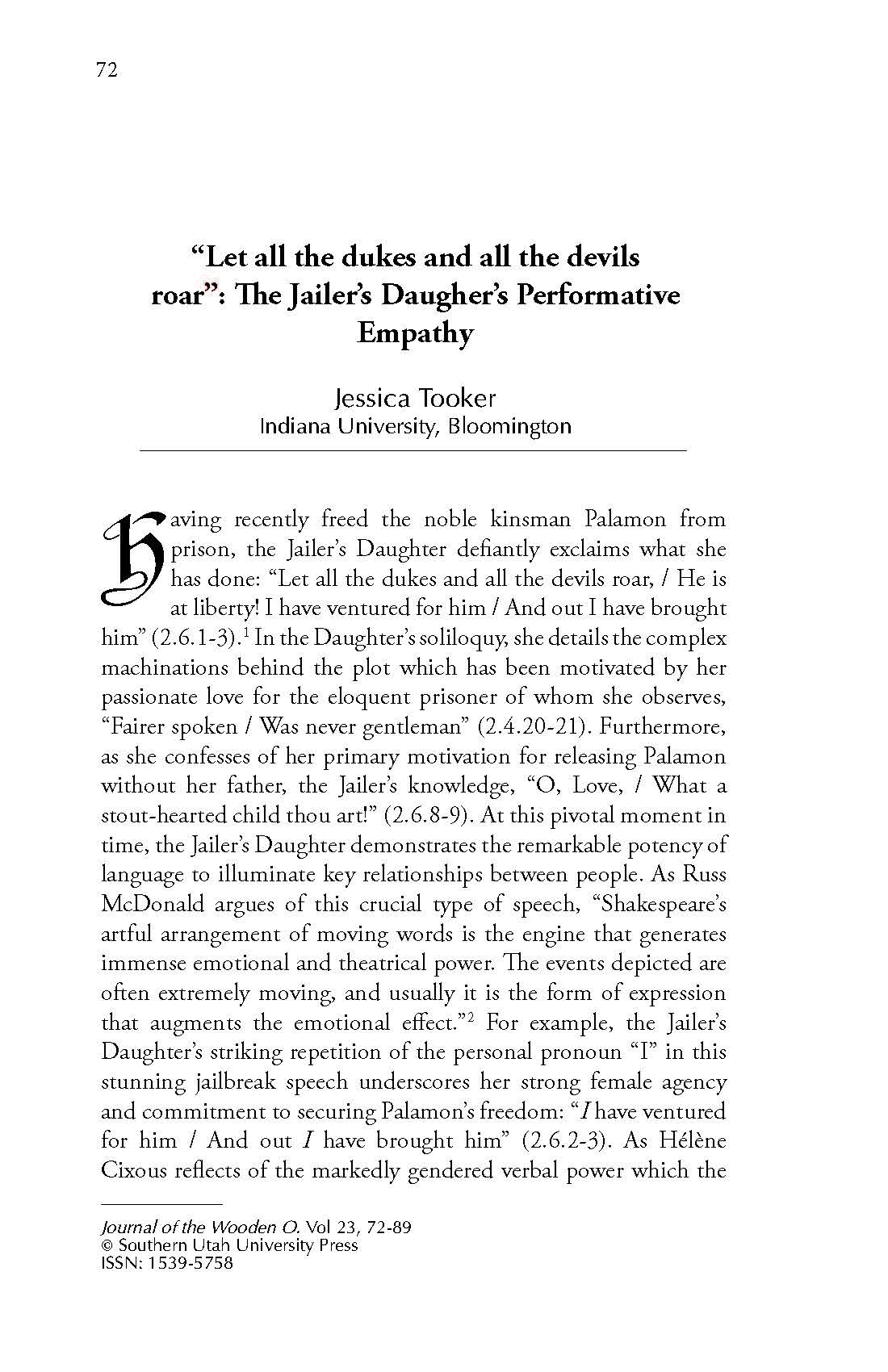"Let all the dukes and all the devils roar" The Jailer's Daughter's Performative Empathy
Main Article Content
Abstract
Having recently freed the noble kinsman Palamon from prison, the Jailer’s Daughter defiantly exclaims what she has done: “Let all the dukes and all the devils roar, / He is at liberty! I have ventured for him / And out I have brought him” (2.6.1-3).1 In the Daughter’s soliloquy, she details the complex machinations behind the plot which has been motivated by her passionate love for the eloquent prisoner of whom she observes, “Fairer spoken / Was never gentleman” (2.4.20-21). Furthermore, as she confesses of her primary motivation for releasing Palamon without her father, the Jailer’s knowledge, “O, Love, / What a stout-hearted child thou art!” (2.6.8-9). At this pivotal moment in time, the Jailer’s Daughter demonstrates the remarkable potency of language to illuminate key relationships between people. As Russ McDonald argues of this crucial type of speech, “Shakespeare’s artful arrangement of moving words is the engine that generates immense emotional and theatrical power. The events depicted are often extremely moving, and usually it is the form of expression that augments the emotional effect.”2 For example, the Jailer’s Daughter’s striking repetition of the personal pronoun “I” in this stunning jailbreak speech underscores her strong female agency and commitment to securing Palamon’s freedom: “I have ventured for him / And out I have brought him” (2.6.2-3). As Hélène Cixous reflects of the markedly gendered verbal power which the Daughter displays, “Feminine strength is such that while running away with syntax, breaking the famous line (just a tiny little thread, so they say) … she goes to the impossible where she plays the other, for love, without dying of it.”3 Challenging her potential detractors, the Daughter rhetorically “runs away with syntax” by speaking from a place of deeply rooted authority—and of course, personal agency. If, as Jillian Cavanaugh argues, “Performativity is the power of language to effect change in the world: language does not simply describe the world but may instead (or also) function as a form of social action,” the Jailer’s Daughter’s decisive words not only emphasize her shocking release of the prisoner, but also trigger the powerful affective responses of imagination and empathy within the audience—thus rendering its members complicit in her compelling ruse.4
